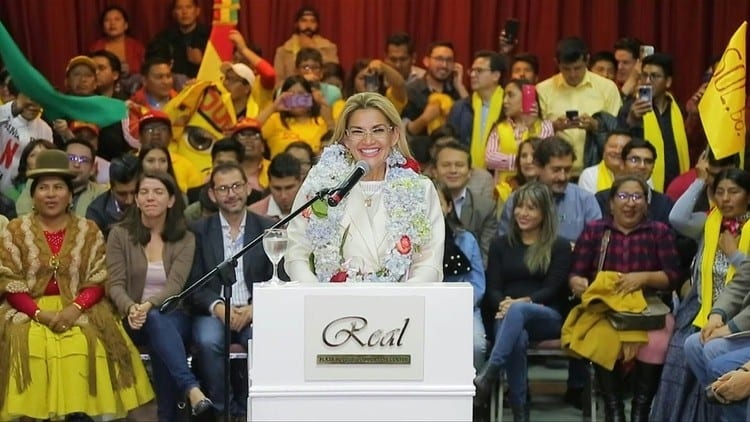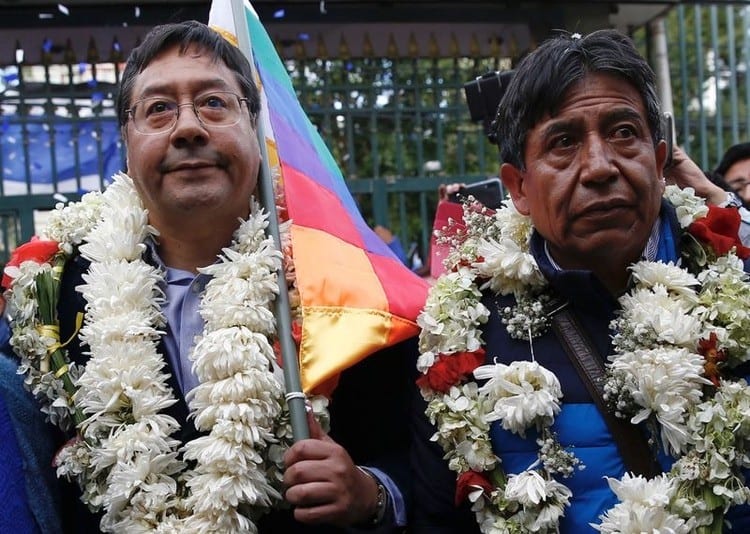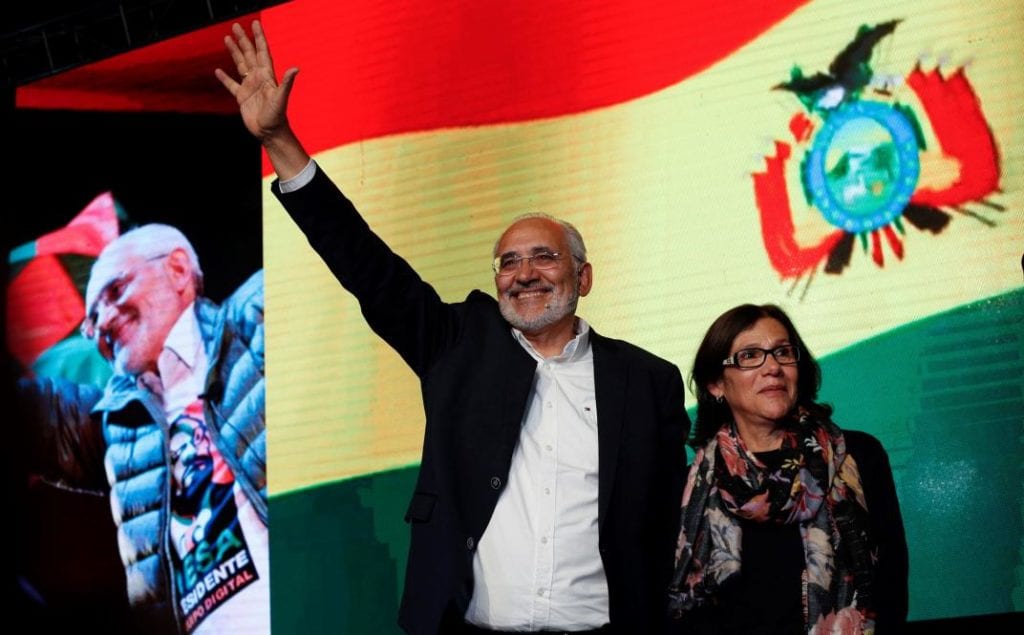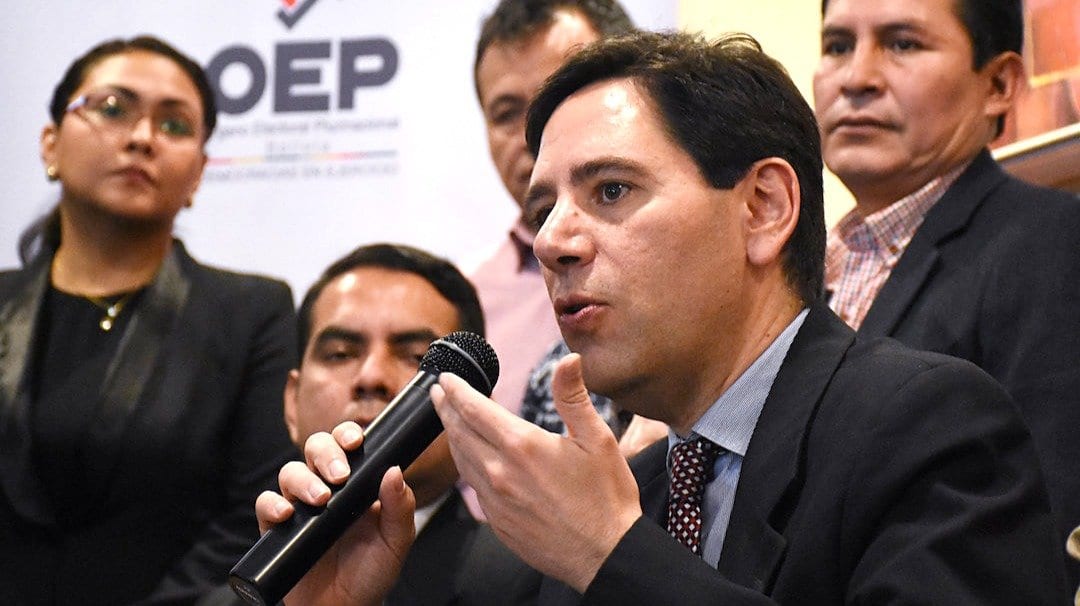The former Bolivian President Evo Morales accused the country’s Supreme Electoral Court of violating democracy after this collegial body refused to register his candidacy for the General Elections to the Upper House of the Parliament. He wrote about this on February 20 on his page on the social network “Twitter”. What is happening in Bolivia today? Has the period of “political turbulence” ended in a country named after the liberator Simon Bolivar?
Returning to the history of the issue, it is worth recalling that since the end of October, Bolivia has plunged into a period of acute political crisis. On October 20, the presidential and parliamentary elections were held in the Latin American country. After checking 100% of the ballots, the country’s Supreme Electoral Court (Spanish – Tribunal Supremo Electoral) published data according to which the former president Evo Morales (Spanish – Juan Evo Morales Ayma) gained 47.08% of the vote, and his main rival Carlos Mesa (Spanish – Carlos Diego Mesa Gisbert) took the second place – with 36.51%. According to the Political Constitution of Bolivia, a margin of 10% of the vote guaranteed the victory of Morales in the first round.
Then opponents of Evo Morales suspected the government of trying to influence the outcome of the vote, after the electoral commission suspended the vote count for some time when the preliminary result gave the current president – 45% and his rival – 38%. Protests broke out in the country, dissatisfied with the decision of the election commission. On November 10, 2019, under pressure from political forces, the ex-president of Bolivia Morales announced his early resignation and the need for new elections. Representatives of a number of countries immediately stated that a coup d’etat had been committed, and the former head of state went to Mexico City on November 11, having previously obtained the right to political asylum from the Mexican government.

On November 12, the Senator Jeanine Áñez (Jeanine Áñez Chávez), in the absence of a parliamentary quorum, declared herself the interim president of Bolivia. In 2019, she became the second Vice-Speaker of the Senate, representative of the Democratic Unity Party (Spanish – Unidad Demócrata) in the upper house of the Bolivian Parliament. This position made her the sixth in the line of succession of the presidency. Due to the resignations of the country’s leaders, on November 12, 2019 she proclaimed herself the interim president of Bolivia based on Art. 169 and 170 of the Political Constitution of the country in force since 2009. She stated that her first task would be to achieve a quorum after a series of resignations of the top officials of the state, and then call new elections.
The first steps in the new transitional government of Áñez were the appointment of a new cabinet, heads of state-owned companies, ambassadors and representatives of international organizations. Last December, many international observers started talking about the fact that Jeanine Áñez has already moved away from the rhetoric of her “temporary status” and is trying to gain a foothold in power by any means, extending her power mandate and developing new foreign policy guidelines for Bolivia.
However, on January 3, the chairman of the country’s Supreme Electoral Court, Salvador Romero Ballivián, appointed by the transitional government last November, appointed by the transitional government, announced the final date for the May 3 general elections in Bolivia. In addition to the president and vice president, who considers in conjunction with the candidacy of the head of state, Bolivians have to choose the new composition of the Plurinational Legislative Assembly: the House of Senators and the Chamber of Deputies.
In late January, political forces had already decided on their candidates. Acting interim head of state Jeanine Áñez, who initially claimed that she did not intend to run for the upcoming elections, still changed her mind and competed for the presidency in tandem with large entrepreneur Samuel Doria Medina Auza from the party “Democratic unity”.

The largest party, “Movement to Socialism” (Spanish – Movimiento al Socialismo, MAS) is once again entering the political arena, presenting the candidatures of the former Minister of Economics and Public Finances Luis Arce Catacora (Spanish – Luis Alberto Arce Catacora) and the former Foreign Minister David Choquehuanca (Spanish – David Choquehuanca Céspedes) as head of state and vice president, respectively. Luis Arce promises to take revenge and regain the leading position of the Evo Morales party.
By the way, Morales himself this time decided to run for office in the upper house of the Bolivian parliament. However, on February 20, the chairman of the Supreme Electoral Court, Salvador Romero, said at a press conference that it was decided to reject the ex-president’s application for registration as a candidate for senator for a number of inconsistencies with the requirements for promotion to this position. Evo Morales has already publicly stated that he is not going to give up and will challenge this decision.
Another candidate for the post of head of state was Carlos Mesa from the “Civil Community” Party (Spanish – Comunidad Ciudadana). Mesa was Morales’ main rival in the elections held last October, the results of which were canceled.

On March 1, all the political forces of the country will begin their election campaigns. According to the published data of the consulting company Ciesmori, 31.6% of respondents support the candidacy of the new leader of the “Movement to Socialism” party, Luis Arce. 17.1% are ready to vote for the former head of state Carlos Mesa. But the interim president of Bolivia, Jeanine Áñez, is gaining 16.5%.
However, not a single political analyst has yet to take responsibility to predict the outcome of the upcoming vote, because the mood of the Bolivian population can completely change during the election campaign. Will the representatives of the country’s largest political platform, Movement to Socialism, be able to take revenge and return to power? Or will the transitional government decide to linger in the Presidential Palace? Bolivians will have to answer these and many other questions in a couple of months.


